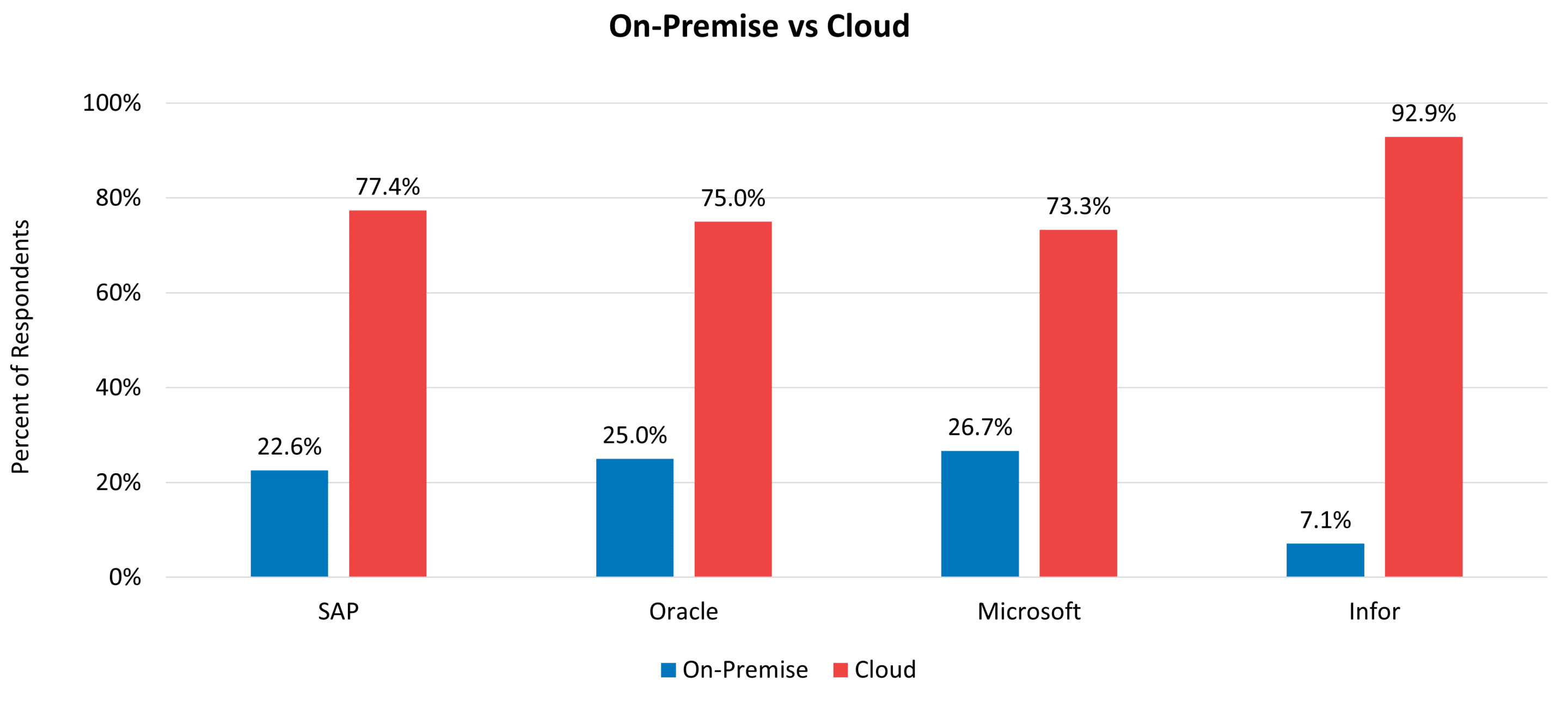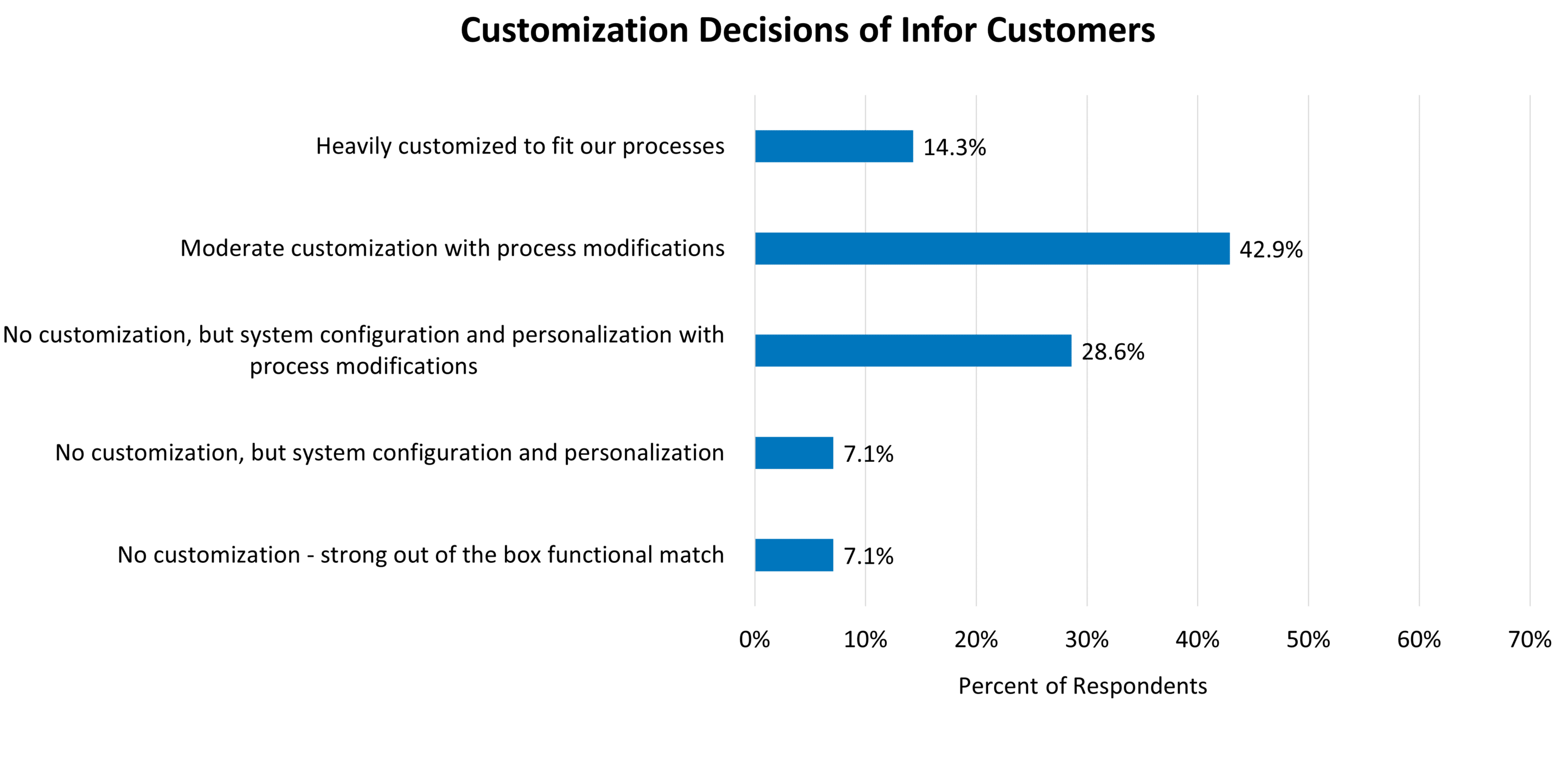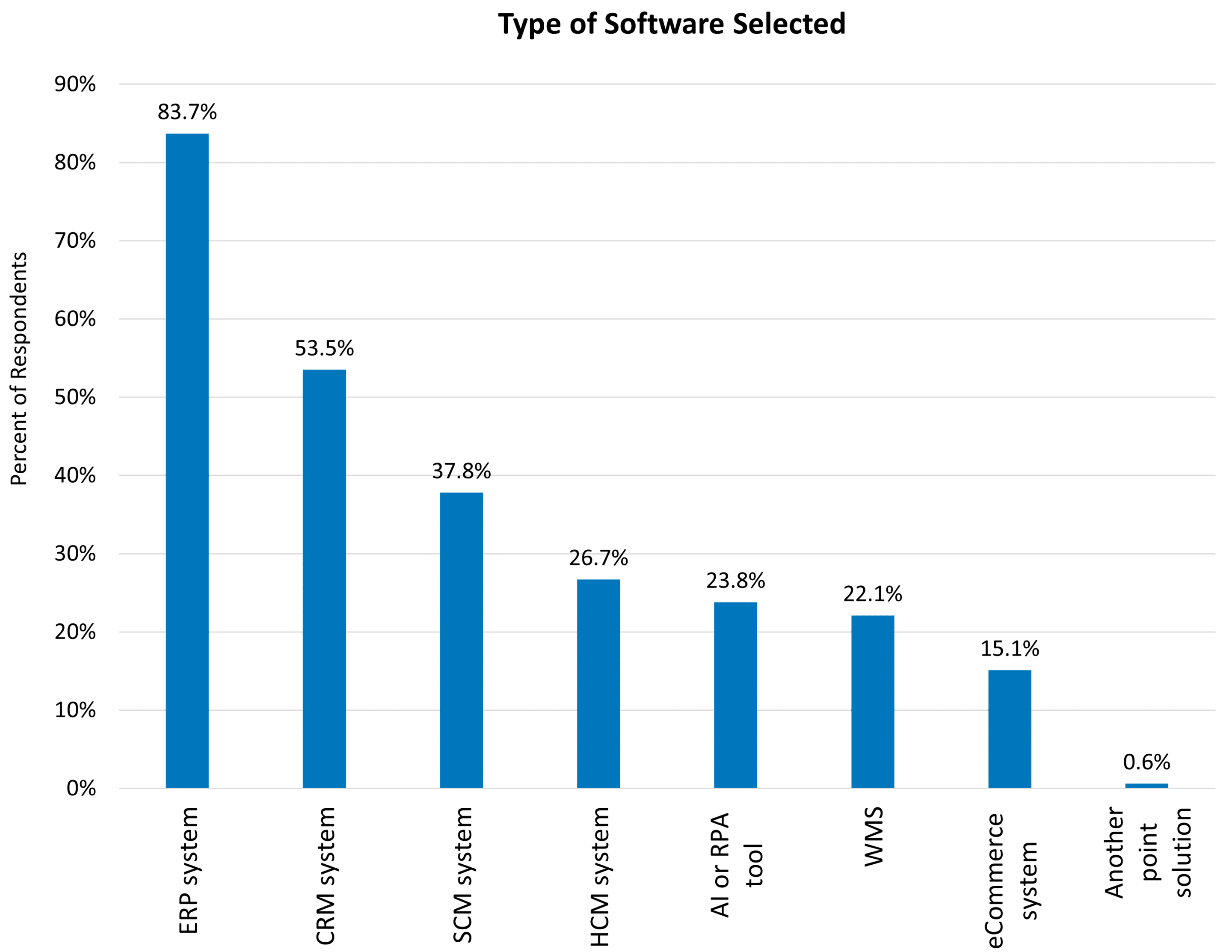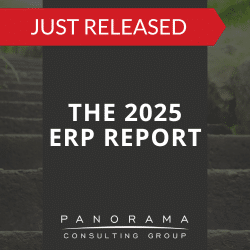Every year, we conduct an independent analysis of the Tier 1 ERP vendors. The analysis, known as Clash of the Titans, is based on data we collect from organizations that have implemented SAP, Oracle, Microsoft, or Infor products.
As we release 2025 Clash of the Titans, we thought it would be helpful to discuss how to select a Tier 1 ERP system (if you’ve decided this is the right type of system for you).
2025 Clash of the Titans
SAP, Oracle, Microsoft, and Infor each have a variety of systems that can support data-driven decision-making. We surveyed customers of these four vendors to find out what their selection and implementation process was like.
How to Select a Tier 1 ERP System
1. Consider Whether the Vendor Would be a Good Implementation Partner
Your system integrator or ERP consultant will not be your only implementation partner. Your ERP vendor will also be involved in helping you develop a project plan and implement your new technology.
Some key criteria to look for in an implementation partner are vision, dedication, expertise, and trustworthiness.
Vision
Let’s say you have a business requirement to print shipping labels from various logistics providers before shipments leave your warehouse.
A vendor solely focused on winning the bid might tell you their software can meet this requirement, but a vendor with vision will ask related follow-up questions: Have you considered integrating carrier services with your ERP system? Are you utilizing dock management to help schedule your logistics partners for pick-up and drop-off?
Follow-up questions like these mean the vendor has a vision for what you could achieve with your ERP software. In this example, they are envisioning an integrated system that not only prints shipping labels but directly interfaces with your logistics services to determine timelines and ensure dock availability.
Dedication
You want an implementation partner that will dedicate time and resources to your company when it encounters an issue, despite how many other customers they are supporting.
You can gauge their dedication by thinking back to the RFP process. Did you have a dedicated account manager or one whose attention seemed divided?
Expertise
The most straightforward consideration in a partnership with a vendor is expertise. Even though Tier 1 ERP vendors have a wide breadth of capabilities across industries, it’s still smart to ask how much expertise they have with your specific sub-vertical.
Trustworthiness
Was the vendor transparent in their pricing? Did they communicate clearly and follow up in a timely manner during the RFP process?
If you have difficulties with trust and communication before you’ve even signed the contract, imagine the challenges you’ll experience during implementation. You could even find yourself in need of ERP project recovery.
2. Evaluate the Vendor’s Implementation Approach and Post Go-live Support
When necessary, vendors can provide external resources to augment your internal project team. This expertise – combined with the expertise of an ERP consultant – is essential for a successful ERP implementation.
When evaluating your vendor’s implementation approach, ensure it’s practiced, proven, and realistic in terms of cost and timeline.
Post-go-live support is another important consideration. While it may seem too early to think about post-go-live before you’ve selected software, it’s better to know about your vendor’s support plan sooner rather than later.
Your vendor should offer several support options, including a dedicated one. This is especially true if you’re considering cloud ERP (as most survey respondents reported).

3. Focus on Your Differentiating Business Requirements
Tier 1 ERP vendors have a variety of industry-standard business processes built into many of their solutions. However, every business is unique, so you might find that one of your differentiating business requirements can’t be met out of the box.
You don’t want to standardize these processes because they provide competitive advantage, so what now? This is when it becomes important to ask about customization and integration options.
Expert Tip
Considering SaaS ERP? To prevent future compatibility issues caused by customization, you should ask vendors about ERP customization alternatives, such as configuration, microservices, and more.
The graph below shows the customization approach of Infor customers, according to 2025 Clash of the Titans. Among the four vendors, this vendor had customers who did the least amount of customization.

4. Consider the Vendor’s Other Offerings
A unique advantage that Tier 1 ERP vendors have over other vendors is other applications in their portfolio that complement their main ERP system.
For example, many vendors offer supply chain management systems that feature real-time inventory tracking and predictive analytics.
When selecting an ERP system from a Tier 1 vendor, consider which of your existing business applications you might replace in the future (e.g., your warehouse management system). Does the vendor offer robust warehousing functionality? If not, could this vendor really be your partner for the long haul?
The graph below shows the variety of types of software selected by SAP, Oracle, Microsoft, and Infor customers overall.

5. Consider Case Studies and References
Since Tier 1 ERP vendors have thousands of customers, they should have plenty of case studies and references for you to consider.
We recommend asking vendors to provide references for customers comparable to your company’s size and industry. Better yet, ask if there are any case studies on your competitors.
Leveraging these references and case studies, you can determine if a vendor is a good partner, what their implementation process is like, and what other applications may add value.
Selecting a Tier 1 ERP System is Challenging
Evaluating Tier 1 software solutions involves many strategic decisions. As you navigate decisions around integration, customization, and more Panorama’s ERP consulting team can help you move forward with confidence.
Request a free consultation to speak with our ERP experts, and don’t forget to download 2025 Clash of the Titans.













